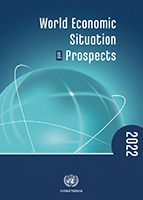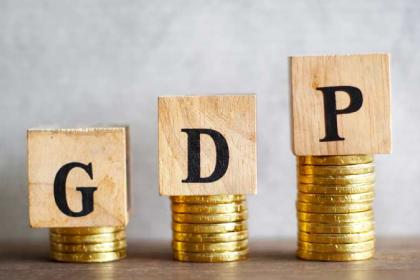
The world is now two years into the COVID-19 pandemic, and the end is nowhere in sight. The human, economic and social toll of the pandemic has been devastating. Rising poverty, job losses, shredded safety nets, health-care systems pushed to the brink, and the impacts of a changing climate are placing the Sustainable Development Goals further out of reach.
Inequalities are intensifying, setting the stage for an uncertain, uneven and unfair recovery. In some countries, ambitious vaccination roll-outs and bold economic support and stimulus packages are paving the way towards recovery. But progress is not being shared equally.
More than a quarter of developing countries have yet to achieve their pre-pandemic levels of output, hampered by severely inadequate access to vaccines and limited financial resources. Job creation has been insufficient to make up for earlier losses, with employment deficits disproportionally affecting women and youth.
Against this backdrop, the risk of new COVID-19 variants emerging and spreading threatens to derail any recovery prospects.
At the same time, rapidly rising inflation in many parts of the world will result in higher interest rates, limiting borrowing and constraining fiscal space at exactly the time countries should be investing in jobs, education, health care, and the green economy.
For developing countries already drowning in debt, this is a recipe for defaults and prolonged economic distress.
In this fragile and uneven period of global recovery, the World Economic Situation and Prospects 2022 calls for better targeted and coordinated policy and financial measures at the national and international levels.
As detailed in this report, national fiscal and monetary authorities need to carefully sequence, calibrate and coordinate their policies to avoid sudden disruptions. Internationally, the world needs to come together to reform the global financial system. This requires the full mobilization of governments, international financial institutions, credit-rating agencies and others.
We must act across a wide range of challenges – from addressing illicit financial flows, to injecting more fairness into the global tax system, and encouraging more private investment into developing countries. We must also overhaul the international debt architecture, so developing countries can access the financing and debt relief they need to spur recovery in the short term and invest in resilient and sustainable development over the longer term.
This must include investments in education systems, universal health coverage and social protection, jobs in the green, digital and care economies, and access to COVID-19 vaccines for all, so we can put the pandemic behind us.
The time is now to close the inequality gaps within and among countries. If we work in solidarity – as one human family – we can make 2022 a true year of recovery for people and economies alike.
The United Nations system stands ready to work with every country to make our way through this global crisis, and build the resilient, inclusive, equal and sustainable world economy that every person needs and deserves.

Secretary-General of the United Nations
The World Economic Situation and Prospects 2022 is a report produced by the United Nations Department of Economic and Social Affairs (UN DESA), in partnership with the United Nations Conference on Trade and Development (UNCTAD) and the five United Nations regional commissions: Economic Commission for Africa (UNECA), Economic Commission for Europe (UNECE), Economic Commission for Latin America and the Caribbean (UNECLAC), Economic and Social Commission for Asia and the Pacific (UNESCAP) and Economic and Social Commission for Western Asia (UNESCWA). The United Nations World Tourism Organization (UNWTO) also contributed to the report.




